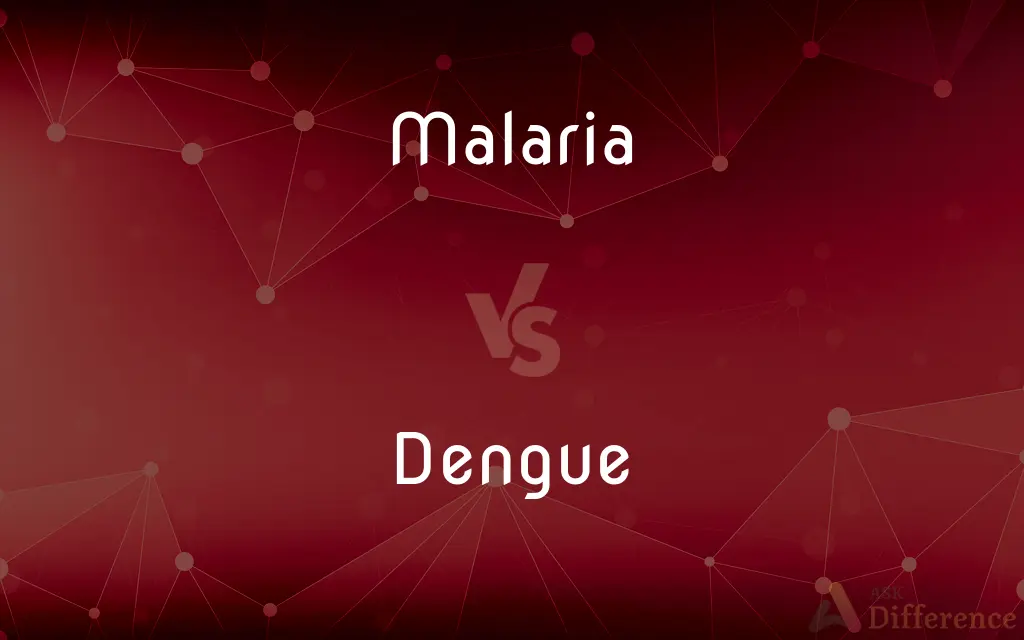Malaria vs. Dengue — What's the Difference?

Difference Between Malaria and Dengue
ADVERTISEMENT
Compare with Definitions
Malaria
Malaria is a mosquito-borne infectious disease that affects humans and other animals. Malaria causes symptoms that typically include fever, tiredness, vomiting, and headaches.
Dengue
An acute, infectious tropical disease caused by any of four related flaviviruses that are transmitted by mosquitoes, characterized by high fever, rash, headache, severe muscle and joint pain, and minor bleeding. A severe form of the disease (dengue hemorrhagic fever), characterized by bleeding from the gums and gastrointestinal tract, can lead to shock and death. Also called breakbone fever, dandy fever, dengue fever.
Malaria
An infectious disease characterized by cycles of chills, fever, and sweating, caused by a protozoan of the genus Plasmodium in red blood cells, which is transmitted to humans by the bite of an infected female anopheles mosquito.
Dengue
An acute febrile disease of the (sub)tropics caused by the Dengue virus, a flavivirus, transmitted by Aedes mosquitoes, and characterized by high fever, rash, headache, and severe muscle and joint pain.
Malaria
(Archaic) Bad or foul air; miasma.
ADVERTISEMENT
Dengue
A specific epidemic disease attended with high fever, cutaneous eruption, and severe pains in the head and limbs, resembling those of rheumatism; - called also breakbone fever. It occurs in India, Egypt, the West Indies, etc., is of short duration, and rarely fatal.
Malaria
A disease spread by mosquito, in which a protozoan, Plasmodium, multiplies in blood every few days.
Dengue
An infectious disease of the tropics transmitted by mosquitoes and characterized by rash and aching head and joints
Malaria
(archaic) Supposed poisonous air arising from marshy districts, once thought to cause fever.
Malaria
Air infected with some noxious substance capable of engendering disease; esp., an unhealthy exhalation from certain soils, as marshy or wet lands, producing fevers; miasma.
Malaria
A human disease caused by infection of red blood cells by a protozoan of the genus Plasmodium, giving rise to fever and chills and many other symptoms, characterized by their tendency to recur at definite and usually uniform intervals. The protozoal infection is usually transmitted from another infected individual by the bite of an Anopheles mosquito.
Malaria
An infective disease caused by sporozoan parasites that are transmitted through the bite of an infected Anopheles mosquito; marked by paroxysms of chills and fever
Share Your Discovery

Previous Comparison
Clay vs. Slime
Next Comparison
Sweet vs. Tart














































